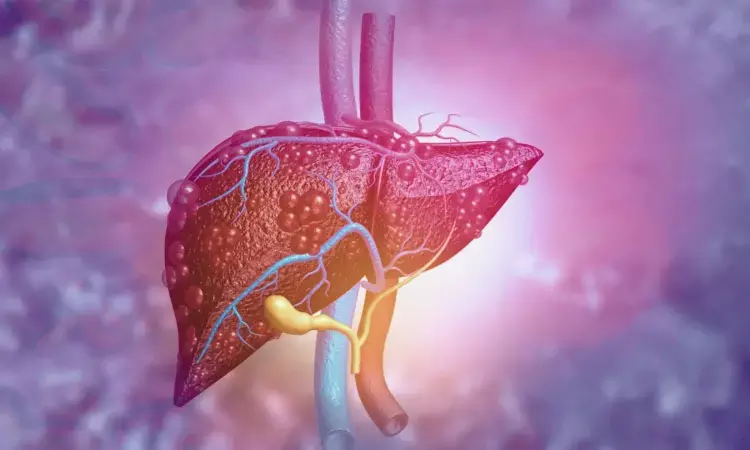- Home
- Medical news & Guidelines
- Anesthesiology
- Cardiology and CTVS
- Critical Care
- Dentistry
- Dermatology
- Diabetes and Endocrinology
- ENT
- Gastroenterology
- Medicine
- Nephrology
- Neurology
- Obstretics-Gynaecology
- Oncology
- Ophthalmology
- Orthopaedics
- Pediatrics-Neonatology
- Psychiatry
- Pulmonology
- Radiology
- Surgery
- Urology
- Laboratory Medicine
- Diet
- Nursing
- Paramedical
- Physiotherapy
- Health news
- Fact Check
- Bone Health Fact Check
- Brain Health Fact Check
- Cancer Related Fact Check
- Child Care Fact Check
- Dental and oral health fact check
- Diabetes and metabolic health fact check
- Diet and Nutrition Fact Check
- Eye and ENT Care Fact Check
- Fitness fact check
- Gut health fact check
- Heart health fact check
- Kidney health fact check
- Medical education fact check
- Men's health fact check
- Respiratory fact check
- Skin and hair care fact check
- Vaccine and Immunization fact check
- Women's health fact check
- AYUSH
- State News
- Andaman and Nicobar Islands
- Andhra Pradesh
- Arunachal Pradesh
- Assam
- Bihar
- Chandigarh
- Chattisgarh
- Dadra and Nagar Haveli
- Daman and Diu
- Delhi
- Goa
- Gujarat
- Haryana
- Himachal Pradesh
- Jammu & Kashmir
- Jharkhand
- Karnataka
- Kerala
- Ladakh
- Lakshadweep
- Madhya Pradesh
- Maharashtra
- Manipur
- Meghalaya
- Mizoram
- Nagaland
- Odisha
- Puducherry
- Punjab
- Rajasthan
- Sikkim
- Tamil Nadu
- Telangana
- Tripura
- Uttar Pradesh
- Uttrakhand
- West Bengal
- Medical Education
- Industry
Study Finds GLP-1 RAs May Lower Liver and Heart Complications in MASLD Patients with Diabetes

USA: A recent study published in Diabetes, Obesity and Metabolism has reported that the use of glucagon-like peptide-1 receptor agonists (GLP-1 RAs) is linked to a lower risk of liver disease progression, major acute cardiovascular events (MACE), and all-cause mortality in individuals with diabetes and hepatic steatosis.
The research, conducted by Ishak A. Mansi from the Department of Internal Medicine, University of Central Florida College of Medicine, Orlando, Florida, and colleagues, emphasizes the potential role of GLP-1 RAs in addressing both hepatic and cardiovascular complications in this high-risk population.
Metabolically-dysfunction-associated steatotic liver disease (MASLD), previously referred to as non-alcoholic fatty liver disease, is now recognized as the leading cause of chronic liver disease in the United States. The condition not only advances to cirrhosis in some patients but is also strongly associated with an increased risk of severe cardiovascular outcomes. Recognizing the dual burden of liver and heart complications, the study aimed to evaluate whether GLP-1 RA therapy could offer protective benefits compared to dipeptidyl-peptidase-4 inhibitors (DPP4i).
The researchers conducted a retrospective cohort analysis using national data from the U.S. Department of Veteran Affairs, including individuals diagnosed with non-alcoholic hepatic steatosis who began treatment with either GLP-1 RAs or DPP4i between October 2005 and September 2021. Both groups were carefully matched using propensity scores across 73 baseline characteristics to ensure comparability.
The following were the key findings of the study:
- The study analyzed 58,157 matched pairs of GLP-1 RA and DPP4i users.
- GLP-1 RA users had a lower rate of liver disease progression at 6.1% compared to 7.0% among DPP4i users.
- The odds ratio (OR) for liver disease progression was 0.86 with a 95% confidence interval (CI) of 0.82–0.90.
- Patients using GLP-1 RAs showed a reduced incidence of major cardiovascular events (MACE) and all-cause mortality, with 11.1% affected compared to 14.7% in the DPP4i group.
- The odds ratio for MACE/death was 0.72 with a 95% CI of 0.70–0.75, indicating significant cardiovascular protection.
- Treating 109 individuals with GLP-1 RAs would prevent one additional case of liver disease progression.
- Only 27 individuals would need treatment with GLP-1 RAs to avert one case of MACE or death.
The findings highlight the importance of a comprehensive management approach in patients with MASLD and diabetes. According to the authors, focusing solely on preventing liver disease progression may not be sufficient. Instead, therapies that simultaneously address cardiovascular risk should be prioritized to improve overall outcomes.
"The large-scale real-world analysis adds to the growing body of evidence supporting GLP-1 RAs as a therapeutic option with benefits extending beyond glycemic control, positioning them as valuable agents in reducing both hepatic and cardiovascular complications in this vulnerable patient group," the authors concluded.
Reference: https://doi.org/10.1111/dom.16657
Dr Kamal Kant Kohli-MBBS, DTCD- a chest specialist with more than 30 years of practice and a flair for writing clinical articles, Dr Kamal Kant Kohli joined Medical Dialogues as a Chief Editor of Medical News. Besides writing articles, as an editor, he proofreads and verifies all the medical content published on Medical Dialogues including those coming from journals, studies,medical conferences,guidelines etc. Email: drkohli@medicaldialogues.in. Contact no. 011-43720751


